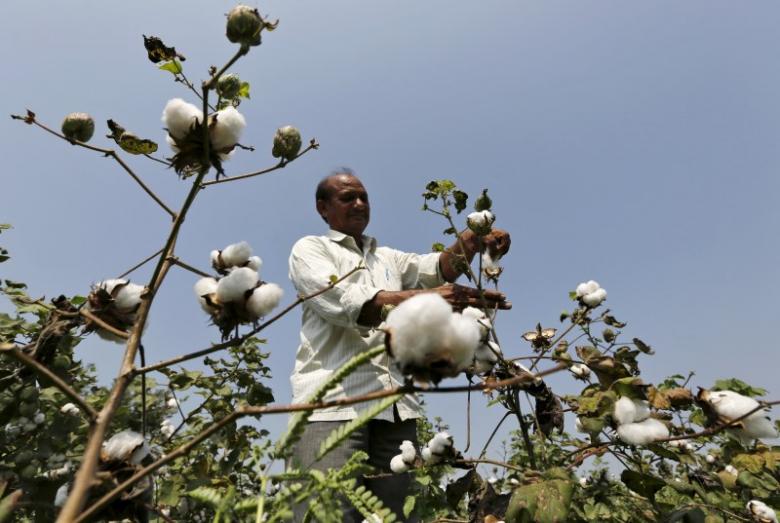
Speaking at a press conference on Friday, Pakistan Cotton Ginners Association (PCGA) Senior Vice Chairman Suhail Mehmood Haral, Ginners Group Chairman Haji Muhammad Akram and former PCGA chairman Shehzad Ali Khan revealed that more than 2 million bales of cotton were lying unsold in ginning factories, which textile millers were reluctant to purchase.
Pakistan suspends cotton imports from India
Another 700,000 bales are expected next month. They saw no justification for lifting an undeclared ban on cotton import from India at the cost of Pakistan’s farmers, arguing fibre import via land or sea was not in the interest of national economy.

They underlined the need for continuing the restrictions on cotton imports through the Wagah border crossing and Karachi seaport.
Farmers have also aired concern over the removal of curbs from cotton import from India, which would imperil the domestic industry.
They demanded that the government ensure crop purchase at reasonable prices from the country’s growers. They were expecting a bumper crop this year, but feared that imports from India would hit the local growers hard.
They decried that the government did not fix the support price for cotton, leaving them at the mercy of textile millers, who would buy the fibre at their desired rates.
Ginners Group Chairman Haji Muhammad Akram asked the government to slap a complete ban on cotton imports from India via Wagah border.
If such imports continued without any curbs, he believed, they would harm cotton production in the country in the next season.
Last year, cotton harvest had dropped 30% and if appropriate measures were not taken, the situation could deteriorate further and affect local output.
Pakistan expects cotton production to hit 11.39m bales
Former PCGA chairman Shehzad Ali Khan disclosed that 530,000 bales of cotton had so far been imported from India through the Wagah crossing.
Players of the ginning industry, however, praised efforts of Federal Minister of National Food Security and Research Sikandar Hayat Khan Bosan, who was endeavouring to bring down the cost of cotton production.
He was of the view that the production cost was higher than the prices farmers were receiving for their harvest. The high cost was one of the reasons behind the decline in cotton production, he added.
Published in The Express Tribune, January 7th, 2017.
Like Business on Facebook, follow @TribuneBiz on Twitter to stay informed and join in the conversation.




1732538123-0/BeFunky-collage-(90)1732538123-0-165x106.webp)




1732486769-0/image-(8)1732486769-0-270x192.webp)







COMMENTS (1)
Comments are moderated and generally will be posted if they are on-topic and not abusive.
For more information, please see our Comments FAQ